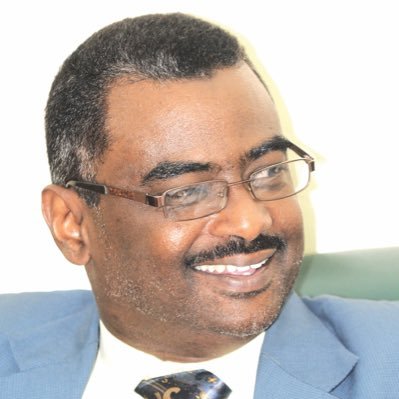Soft Waves .. Sudan.. Accelerated External Movements

Dr. Yassir Mahjoub Al-Hussein
With the acceleration of the pace of military operations in Sudan, diplomatic and political movements have become active in the context of a movement of external visits to the temporary Sudanese capital, Port Sudan, by senior officials from countries interested in the current Sudanese crisis; The most prominent event was an official visit by Ethiopian Prime Minister Abiy Ahmed, accompanied by Ethiopian officials concerned with joint dossiers ; military, security, and political.
The element of astonishment comes from the great disparity between the leaderships of the two neighboring countries following this crisis, in addition to other issues with a regional dimension such as the controversial Renaissance Dam project ( GERD) Sudan accuses its eastern neighbor of openly standing with the Rapid Support RSF Militia, which rebelled against the Sudanese army SAF and its political wing, represented by the Forces of Freedom and Change (FFC), which changed its name to the (Taqddum ) Coordination. Sudanese anger reached its peak when Abiy Ahmed spoke in July of last year about what he called the “vacuum in Sudan’s leadership”, and then received what was promoted as the leader of the rebel Rapid Support Forces RSF militia in Addis Ababa and celebrated him. Observers believe that the loss of hope in the existence of any future political legitimacy for the rebel forces and the decline in their chances of achieving any progress on the ground in contrast to the advance of the army forces over them, and its ability to strike all their hard power, in addition to the successive independent international reports about their horrific violations against humanity that the winds blew everywhere, all of this has made Ethiopia reposition itself from the Sudanese crisis and get closer to the Sudanese leadership, and extend bridges of cooperation with it. Some other political analysts add that the issue of the Renaissance Dam (GERD) is also present on the Ethiopian agenda, as Sudan’s objection to the Ethiopian position on its crisis has made it, according to Ethiopian estimates, closer to Egypt, especially since the latter, although Sudan is not completely satisfied with its position on its crisis, is considered the best among foreign positions. Ethiopia began the fifth filling of the Grand Ethiopian Renaissance Dam ( GERD) the week before last, holding back an additional 23 billion cubic meters of Nile water, in addition to the 41 billion cubic meters that were held back in the previous four stages, despite official protests from Egypt and Sudan. Ethiopia may have invested throughout the years of building the dam, which is nearing completion, in the Egyptian-Sudanese disputes, which were a historic opportunity for it to build the dam and fully control the management of its water storage and discharge.
Addis Ababa was able to impose its will on Egypt and Sudan, as the fact that the dam has become a fait accompli is reinforced with the passage of time, and in light of the extreme weakness of the two countries (Egypt and Sudan): the first is suffering from a deteriorating economic situation, and the second is suffering from a devastating regional and international war with internal tools. Therefore, Ethiopia hopes that the fifth and final filling will proceed without any fuss, or any movement from Egypt or necessarily from Sudan.
During the Renaissance Dam (GERD) crisis since 2013, the Sudanese government took positions supporting Ethiopia in the Renaissance Dam project, ( GERD )and although Sudan at the time considered some of the benefits that would accrue to it from the construction of the dam, this view seemed limited in the strategic dimension of national security in the two countries. Perhaps Khartoum realized this (mistake) late, and led a mediation that resulted in an agreement between the three countries in March 2015, but it did not hold due to Ethiopian intransigence, as Ethiopia had made great strides in completing the dam project, which enabled it to rely on the project becoming a reality, whether it pleased those who were satisfied or not. The conclusion of Abiy Ahmed’s visit to Sudan indicates that the two sides overcame the tension in relations following closed-door talks between the leaders of the two countries.
The Ethiopian Prime Minister was said to have offered to play a role in bringing the positions closer in the Sudanese crisis, and the two sides approved measures for security cooperation and coordination to maintain stability on the borders of the two countries, particularly preventing the infiltration of militants on both sides of the border, especially with the possibility of military confrontations between the army and the rebel militia approaching the Ethiopian border, as the militia seeks to open an eastern outlet for the flow of external support. However, it does not seem that the Sudanese leadership is concerned with the results of Abiy Ahmed’s visit other than securing the borders with its eastern neighbor and preventing the penetration of any external support that may come from its direction.
The President of the Sovereignty Council TSC and Commander-in-Chief of the Sudanese Army SAF affirmed after that visit in an address to his soldiers that there would be no negotiations with the terrorist militia until it left civilian areas and citizens’ houses.



